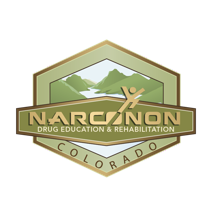Recent Study Finds a Link Between Alcohol and Suicide in Colorado

According to the Centers for Disease Control (CDC), long-term mental health risks of excessive alcohol use include anxiety and depression. It makes sense that social problems that are rooted in alcohol abuse also contribute to a decrease in emotional well-being. It is also common knowledge that drinking in excess can lower a person’s inhibitions which often results in impulsive behavior that a person would never do while sober. After taking all of these things into consideration it makes sense that there would be a correlation between alcohol abuse and suicide.
A recent study done by the Colorado State Health Department found that about half of the people who died from suicide in Colorado between the years of 2011-2015 were under the influence of alcohol, had a previous alcohol problem or were experiencing relationship problems. One in three people had a blood alcohol content (BAC) that indicated the person had been binge drinking at the time of their death.
Kathy Crawford, an alcohol epidemiologist at the Colorado Department of Health was quoted as saying “Clearly, there is a link between excessive alcohol use and suicide in Colorado.” Crawford works in the mental health division at the Colorado Department of Health and studied the toxicology reports for people whose deaths were apart of the study. According to the CDC, there is a definite increase in the risk of suicide when people drink in excess.
According to the study, there are on average 1,633 Colorado deaths per year linked to excessive alcohol use which equals out to an average of five per day. The types of death range from liver disease stemming from chronic alcohol abuse to alcohol-related injuries due to binge drinking. Over half of alcohol-related deaths are from suicide related to binge drinking. Substance abuse is often a red flag to underlying mental health issues that need to be addressed. A person does not have to be an alcoholic to experience negative consequences of drinking too much alcohol.
According to the CDC excessive alcohol use is defined as follows:
- Binge Drinking:
- Four or more drinks consumed in one occasion for women.
- Five or more drinks consumed in one occasion for men.
- Heavy Drinking:
- Eight or more drinks per week for women.
- Fifteen or more drinks per week for men.
- Any alcohol used by women who are pregnant.
- Any alcohol used by those who are 21 years old and under.
According to the Colorado Health Institute, the state of Colorado ranked ninth in the United States for suicide rates in the year 2017. These numbers are alarming and indicate a serious need for change. By taking a closer look at the common threads among these preventable deaths, we can finally begin to address the underlying issues that are causing them.
Suicide Prevention Resources:
Sources:
- Colorado Department of Health and Environment: Alcohol and Suicide in Colorado Study
- The Colorado Sun: One in Three Colorado Suicide Deaths Followed by Binge Drinking
- Across Colorado Patch: Suicide, Drug and Alcohol Death Rate Spike Projected in Colorado
- CDC: Alcohol Use and Your Health
- Trust for America’s Health: Pain in The Nation
- Colorado Health Institute: Colorado’s Suicide Rates Remain High in 2017


